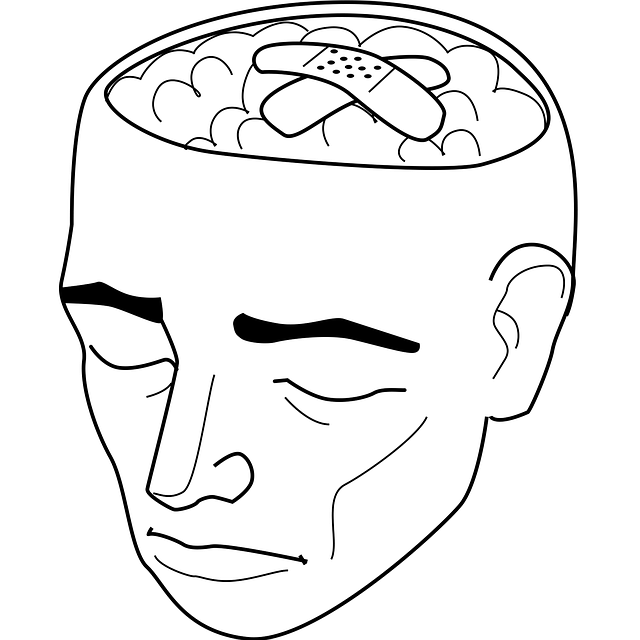Mental health advocacy initiatives, like Parker First Responders Therapy, are crucial for building supportive communities that prioritize open dialogue about well-being. Organizations such as Parker First Responders offer personalized services and accessible resources for managing stress and trauma, fostering a network of mutual support. Through collaborative efforts, local workshops empower residents with coping strategies, enhancing individual resilience and community well-being. By integrating early intervention, emotional well-being promotion, mood management, and peer support, these initiatives create a holistic network that addresses mental health challenges effectively.
Mental health advocacy initiatives play a pivotal role in fostering supportive communities and improving access to care. This article explores these efforts, focusing on community support systems and their impact. We present a case study of Parker First Responders Therapy, an innovative program enhancing mental well-being through unique approaches. Furthermore, we offer strategies for effective advocacy, emphasizing the power of collaboration and tailored interventions. By examining these initiatives, we aim to inspire and guide efforts toward better mental health support in communities worldwide, with insights drawn from the success of Parker First Responders Therapy.
- Understanding Mental Health Advocacy: The Role of Community Support
- Parker First Responders Therapy: A Case Study in Innovative Support
- Strategies for Effective Mental Health Advocacy Initiatives
Understanding Mental Health Advocacy: The Role of Community Support

Mental health advocacy initiatives are vital for creating a supportive community that fosters open discussions about mental well-being. At the heart of this process lies community support, which plays a crucial role in understanding and addressing mental health challenges. Organizations like Parker First Responders Therapy exemplify this commitment by offering tailored services to individuals facing various mental health issues, including trauma. By providing accessible resources, these advocacy groups ensure that people receive the necessary tools for stress management.
Community support also amplifies the impact of Trauma Support Services and Stress Reduction Methods through collaborative efforts. Local organizations often host Stress Management Workshops, empowering residents with effective coping strategies. This collective approach not only reaches a broader audience but also creates a network of individuals who can offer mutual support, fostering an environment where mental health is prioritized and managed effectively.
Parker First Responders Therapy: A Case Study in Innovative Support

Parker First Responders Therapy is a pioneering initiative that demonstrates the power of innovative support for mental wellness. This program was designed to offer specialized therapy and guidance to individuals, especially first responders, who often face unique challenges in their line of work. By focusing on these specific needs, it provides a much-needed safe space for them to process and cope with trauma and stress.
The therapy involves a combination of mental wellness journaling exercises and positive thinking techniques tailored to the high-stress nature of their jobs. This case study highlights how such targeted interventions can significantly improve not just individual resilience but also overall community well-being. By supporting first responders, Parker First Responders Therapy ensures that these essential members of society can continue their vital work with enhanced emotional stability and improved mental health.
Strategies for Effective Mental Health Advocacy Initiatives

Mental health advocacy initiatives require a multi-faceted approach to be truly effective. One key strategy is Parker First Responders Therapy, which focuses on early intervention and support for individuals experiencing mental health crises. This approach ensures that people receive timely assistance, potentially preventing more severe issues down the line. By integrating Emotional Well-being Promotion Techniques into community programs, schools, and workplaces, we can foster a culture of open dialogue around mental health. Encouraging regular practice of Mood Management strategies and promoting Self-Esteem Improvement are essential components of this initiative.
Additionally, involving peer support groups and trained volunteers can significantly enhance the impact of advocacy efforts. These networks provide social connection and understanding, reducing feelings of isolation often associated with mental health struggles. By combining professional interventions with community-driven initiatives, we can create a comprehensive framework that addresses both individual needs and broader societal attitudes towards mental well-being.
Mental health advocacy initiatives, like the innovative practices observed in Parker First Responders Therapy, demonstrate the transformative power of community support. By understanding the crucial role each individual plays, we can navigate challenges and foster a more inclusive, supportive society. Adopting effective strategies outlined in this article ensures that mental health advocacy moves beyond awareness to practical, tangible solutions, ultimately enhancing the well-being of our communities.










